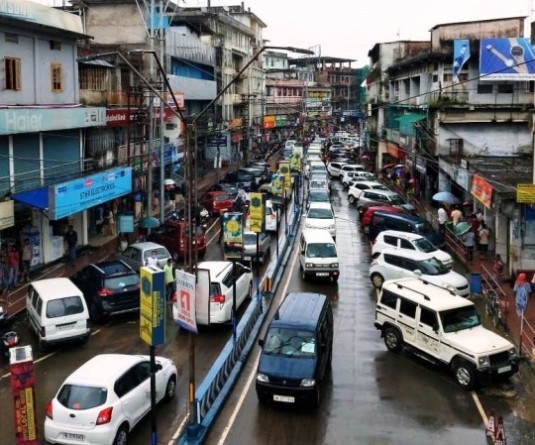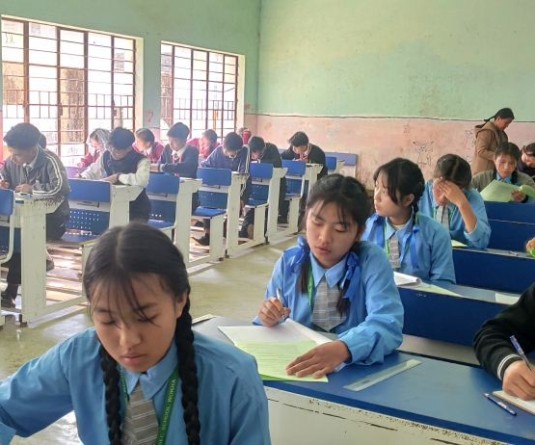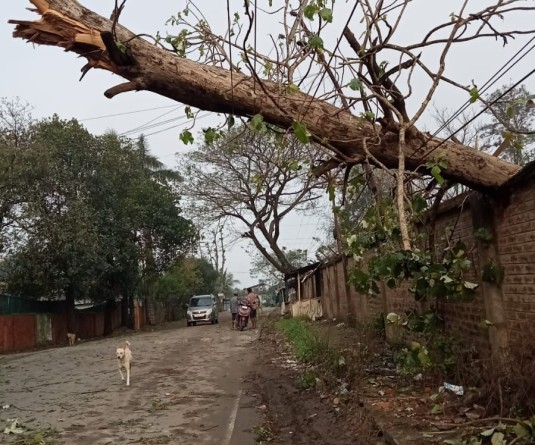
The pandemic’s lessons for governance in Nagaland
Vishü Rita Krocha
Kohima | March 29
The COVID-19 pandemic has been an eye opener for all. It has shown people the issues which need to be prioritised, so that society and government are not caught unaware again.
For the bureaucracy in Nagaland, focusing on strengthening basic services, making the education system adaptable and increase cooperation between different branches of government are key takeaways.
Dharmendra Prakash, IFS, PCCF & HoFF, Environment, Forests & Climate Change, Nagaland said that the basic things required in life are food, shelter and healthcare while other things become immaterial in the face of such a situation.
“We have realized that you don’t need tons of money to survive. This pandemic has taught us that you need only food and other such basic things to survive”, he expressed. He observed that somewhere in the path of development there has been a digression. “The pandemic has given us time to stop for a while, have introspection and do those corrections on how best to lead life,” he stated.
He appealed to the entire community, especially those in power to determine and decide that attention should be focused on basic areas such as food, shelter and healthcare. Once these basic needs are ensured, he said that the State and society can think of other facets of development.
He further noted that Nagaland’s production is still way below its consumption levels. “We are left to fend for ourselves. I hope and pray that as far as food and our daily essentials are concerned, we become self-sufficient at the earliest,” he stated.
This, Prakash stated is commensurate with the development of the healthcare sector. “If these two things are handled well, nobody can stop us from marching ahead,” he added.
Shanavas C, IAS, Principal Director for Education, meanwhile noted that Nagaland had consistently followed a conventional method of education till it was forced to change once the COVID-19 induced lockdown came into force.
“We have not explored any alternative form of education till that time but the pandemic taught us how to deal with that,” he said.
The online system of education was a new challenge for both teachers and students alike. The Principal Director however felt that both eventually adapted to online classes. Students, he stated, are back after a gap of one year and “we are encouraging our teachers to cope with the loss and compensate the students for that.”
Shanavas C also worked closely with the health sector during the pandemic and was part of the COVID-19 War Room. “We faced a lot of issues in the health aspect also”, he recalled while pointing to the lack of facilities in various hospitals and health centres and having to procure a lot of health equipments, apart from connectivity issues.
One of the main components was also identifying people staying outside and extending help in coordination with the administration, other state governments and central government. About 25,000-30,000 including working people, students and patients approached for help, he informed.
Till the time of the COVID-19 lockdown, the Principal Secretary observed that various departments were independently functioning on their own. “COVID-19 taught us how to converge and how to provide help to public and students without delay,” he said.
“It was a new experience for us and everyday was a learning day for us,” he stated.
Meanwhile, he stressed that the fight is not over yet and people still need to be careful. “We should always expect the unexpected, we should be prepared for anything and we should know our duties and perform well, taking all the precautions. Being a bureaucrat or civil servant, we should always be on the front”, he affirmed.
Echoing the same views, Menukhol John, Principal Secretary, Works & Housing Department also stated that the pandemic is not yet over. “We should continue to maintain all safety precautions, and stay safe,” he appealed.





